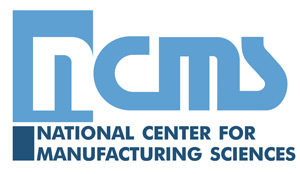Project Announcement – Joint Maintenance Data Enterprise Interoperability (Phase II)
In today’s global net-centric service industry, it is commonplace for maintenance of complex aviation, ship, railway and automotive to be contracted to the best-value provider. In order for this third-party service provider to execute the most effective and efficient maintenance, pedigree information regarding that hardware must be made visible and actionable to that provider. Currently, commercial industries are lacking in software and system capabilities that communicate information not only from system to system but also to multiple facilities globally and across service providers. Any sharing of information, resources or services is usually ad hoc, disjointed and informal with no traceability, and lacks accounting for life-cycle management or cost considerations. Another result of the shortfall in this capability is a significant redundancy of parts stocks, consumable inventory, maintenance capability, and services. All these inefficiencies are ultimately passed to the consumer in terms of the cost paid for goods and services.
Both industry and the military services have been pursuing efforts, (IT, process, procedural and contractual) in an attempt to rectify this issue. Through the International Standards Organization (ISO) and industry associations such as AIA and NDIA, industry has been actively engaged in rectifying this shortfall through the development of overarching information system-agnostic standards for the exchange of hardware pedigree data required for maintenance and sustainment. DoD has also been an active participant in this endeavor and has taken specific actions to evaluate these data interoperability standards through efforts such as Joint Logistics Integration (JLI), Naval Logistics Integration (NLI), MAGTF Logistics Integration (MLI), as well as Inter- agency Logistics Integration initiatives. Although much has been accomplished to date, further work needs to be accomplished in order for the maintenance community to leverage these standards data exchange processes.
Developing tools, technologies and processes that can leverage the benefits associated with operating across organizational boundaries will enable the maintenance and sustainment community to share logistics capacity and materials. This initiative will develop a joint concept of operations (CONOPS) for sharing logistics information across a coalition enterprise in a secured cloud-enabled environment and demonstrate the capability to transmit, receive and manipulate this information between a minimum of two separate maintenance organizations in a logistics exercise that simulates operational conditions. Along with the CONOPS, this initiative will establish agreed to business rules for publishing and subscribing information, continuing the identification and mapping of data using ISO 10303 application protocol 239 (PCLS) and methods for developing decision quality information across the coalition maintenance enterprise.
Those interested in participating in this initiative should contact Debbie Lilu, (734) 995-7038
